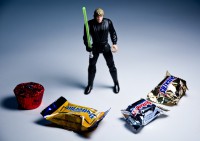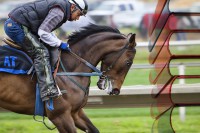The tempter, or the…

The tempter, or the tempted, who sins most? – William Shakespeare (1564 – 1616): Measure for Measure More »

The tempter, or the tempted, who sins most? – William Shakespeare (1564 – 1616): Measure for Measure More »

誘惑するものとされるもの、どちらの罪が重いのか。 – ウィリアム・シェイクスピア (1564 – 1616): 『尺には尺を』 More »
![IMAGE: Flexibility is strength. / Soft and fair goes far. [Soft pace goes far.]](https://www.ok312.net/wp-content/uploads/2015/02/judo-333779_640-200x133.jpg)
Flexibility is strength. / Soft and fair goes far. [Soft pace goes far.] More »
![IMAGE: Flexibility is strength. / Soft and fair goes far. [Soft pace goes far.]](https://www.ok312.net/wp-content/uploads/2015/02/judo-333779_640-200x133.jpg)
柔能く剛を制す(じゅうよくごうをせいす)。 – 『三略』上略 / ([(漢)柔能制剛。]) / ゆっくり着実に進めば遠くまで行ける。[ゆっくり進めば、遠くへ行ける。] More »

Actors are the jockeys of literature. Others supply the horses, the plays, and we simply make them run. – Sir Ralph (David) Richardson (1902 – 83) More »

役者ってのは、文芸作品という馬に乗る騎手だ。「脚」本は他の人が用意する。我々俳優の仕事は、文字通りそれを「ラン」させること。 – ラルフ・リチャードソン (1902 – 83) More »

Nothing will come of nothing. – William Shakespeare (1564 – 1616): King Lear / Nothing comes of nothing. More »

無い袖は振れぬ。(日本の諺) / 無からは無しか出ぬ。 – ウィリアム・シェイクスピア (1564 – 1616): 『リア王』 / 無から有は生じない。 More »

You can kick the football when it is difficult to do; but when it seems easy are you not sure to miss it? – Yoshida Kenkô (1283? – 1352?): Tsure-zure Gusa Section 109 More »

鞠もかたき所を蹴出してのち、やすくおもへば必ず落つと侍るやらん。 – 吉田兼好 (1283? – 1352?): 『徒然草』第百九段 More »